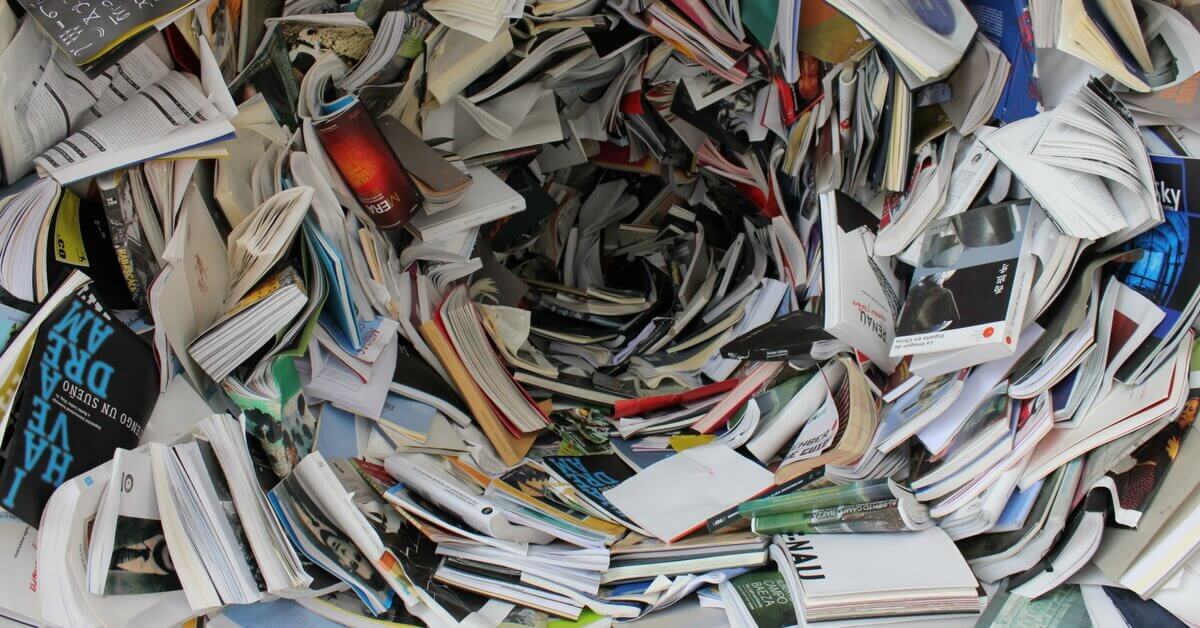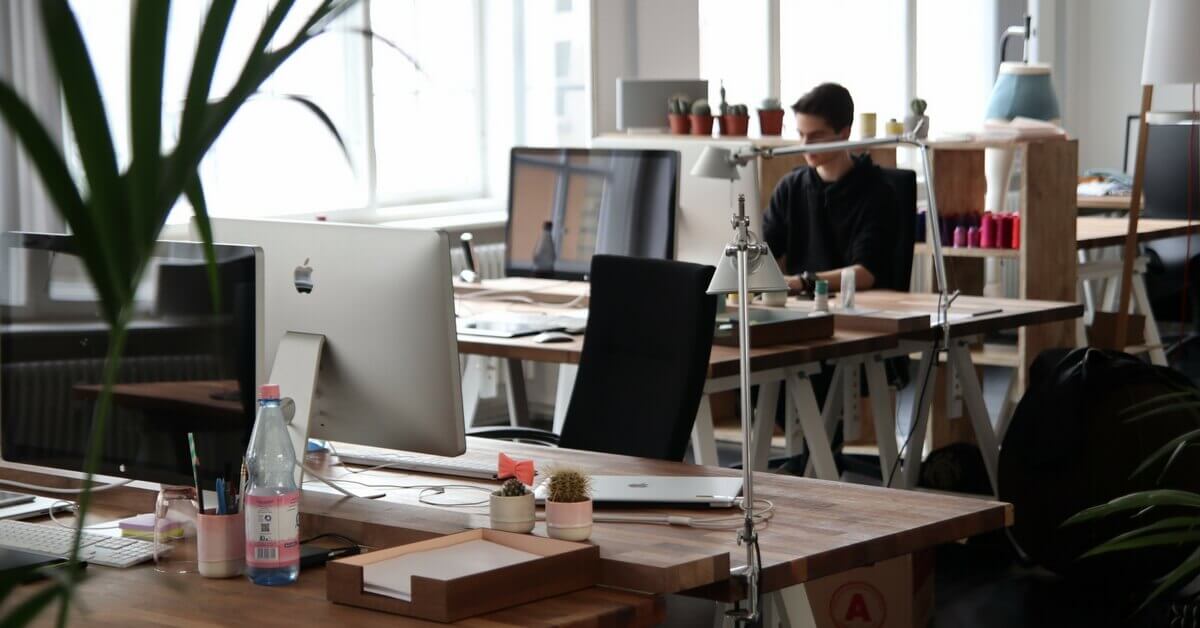Slowly, but surely, we’re all becoming much more aware of how much our consumption of goods affects the environment around us and wastes finite resources, we need to therefore focus on the places we spend a lot of time, raising the question, how to recycle at work.
We’re all becoming more responsible as time goes on and in many ways, it’s important that businesses lead that charge with good waste management strategies.
Not only are they gatherings of many people and institutions within the community that affect that community, they also tend to use many more of those resources.
We should all be more aware of how to recycle at work and what we can do to better recycle the goods we use whilst in the office.
How to improve recycling at work
Of course, awareness of the extent of a problem requires that you actually know how widespread it is.
Nowadays, there are plenty of services to help on how to introduce recycling at work.
A waste audit allows you to take a look at what waste you produce, how much of it is recyclable and how to recycle at work.
You can even pinpoint different stations and sections of the office where the most waste is produced so you know what bad habits to tackle first and where, specifically, to tackle them.
Use your influence
One of the biggest issues of pollution is that it can be a hard sell to everyday people.
The problem is far removed, not close to people, so they don’t fully grapple with it in their minds.
However, if you’re at the head of an office, you can make the stakes much more real for them.
Companies already put incentives in place for things things like performance, avoiding accidents, and taking fewer days off.
Do the same with recycling efforts. You can keep track of the waste produced throughout the office.
Those who recycle more and waste less can be reward with longer breaks or a fifteen-minute early leave on those long, hard Fridays.
Their recycling efforts can even be taken into account when it comes time to decide bonuses.
What incentives you use is up to you, so long as they actually have some value to them.
Environmentally friendly food packaging Eat less wastefully
The most regularly consumed product across the board is food, and the packaging that a lot of food comes in constitutes a significant portion of the waste we throw away.
You can’t dictate how others in the office choose to eat but you can implement some strategies for others to follow on how to recycle at work to give guidance.
You can bring your own packed lunches and offer an incentive for others that do the same.
But you can also make sure that foods with wasteful packaging are less available.
For instance, if you have vending machines, make sure they’re full of only the goods that have recyclable packages and eco friendly food packaging materials.
Set up a green commute
As a society, work causes all of us to be wasteful by design.
Thinking about how to recycle at work isn’t just about being at the office, the commute is also a time where we can be environmentally friendly.
The morning and evening commutes are some of the least environmentally friendly times of the day.
But we can all work to make it a little greener, at least.
You can travel by bike, walking, or public transport and incentivize anyone else who does that.
Or you can set up and incentivize a car sharing initiative amongst the rest of the team.
Many of them may live on the same route and they could all save a lot of money and fuel by pitching in together to one driver instead of each taking their individual vehicles to work with them.

How to recycle at work when you have a team
A business has to be in compliance with its local authority’s mandatory recycling ordinances.
Across the board, this includes at least one recycling station in the premises with a variety of different recycling bins for materials like paper, plastics, and batteries.
However, if you have larger premises, you should invest in fitting more of these recycling stations throughout.
When they’re in the middle of a busy workday, a distracted employee isn’t going to think about how to recycle at work and make the extra trip across the office to find the one bin they’re supposed to use.
Even if the recycling station is right there, they might forget to use it, so throwing up a few posters can do a lot of good, too.
How to recycle at work when you have to get rid of old electronics
Your tech is a tool that might be instrumental in helping you conquer your industry and capture your market more effectively.
We’re constantly looking at both new software and hardware tools that can help us work faster, work smarter, and get a lot more done.
But we have a bad habit of simply scrapping or keeping old equipment in storage until it becomes entirely useless.
Nowadays, however, there are plenty of places that will gladly take old electronics off our hands and make use of the components in new hardware manufacture.
It doesn’t matter how old or obsolete those goods are, the materials inside them are not only valuable, but they’re getting rarer.
You might even get a little compensation for the electronics you hand in.
Upcycle furniture or sell it
Why should we recycle chairs, tables, and other furniture? These items get treated as though they are as disposable as other items within the office.
It okay to upgrade, sometimes we want to make the switch to something more ergonomic that can make work a lot more comfortable.
But other times we’re just looking to switch to a new style or to update for updating’s sake.
No matter your reach, make sure you endeavour to find a new home for any unbroken furniture you still have, or find the appropriate recycling station if you have wooden furniture that could be otherwise recycled.
If you just want a different look to your office, then you might not have to get rid of the furniture at all.
Upcycling those pieces of office furniture can be just as transformative to the aesthetic of the office.
Arrange a pick up recycling service
Despite your efforts to keep it as clean as possible, waste tends to build in offices, especially those with storage rooms and old, unused corners.
If you don’t have a cleaning company at hand, it can accumulate to the point it becomes distracting.
Organise a day to invest in a skip hire and start clearing out every corner of the office of the old team.
While you’re doing this, make sure you’re keeping any unused recyclables set aside from the rest of the waste.
Just as you can organise commercial skip hire, you can also hire small, recycle specific skips to make sure that your efforts are staying sustainable.
How to start recycling paper at work…or just use less paper (use recycled paper)
While food packaging may make up the most populous kind of waste across the board, there’s no question that paper waste plays a unique role in most offices.
We throw away a lot of paper.
To effectively recycle paper at work, we can shred it and make sure it goes into the recycling station as best as possible.
But there’s much more we can do, too.
If you have any packing stations in the office, make sure they’re using renewable packing material and properly disposing of any cardboard they make use of.
When possible, use recycled paper.
It might cost a little more but you can offset those costs by saving with the most fundamental paper-waste reduction method possible:
Use less paper.
Make the move to digital storage when possible.
Not only does it cut paper waste, but it saves a lot of money and storage space, too.
By far, paper is the one area that we can make the most impact.
You might still have to print out those occasional very important documents.
But with Cloud servers and a backup drive, it’s easy to secure and share most other information in the business.
For instance, stop printing out your employee handbooks and turn them into a digital format, instead.
You can even turn them into an easily navigated website that they can log into at any time to find the information they need then and there.

How to improve recycling habits a lasting change
In general, we use a lot of wasteful resources where we could use permanent solutions, instead.
For instance, we often clean with disposable wipes or napkins where we could just as easily use washable fabric cloths that can be used thousands upon thousands of times instead of throwing them away.
Instead of plastic cups at the water cooler or in the kitchen, make sure you have enough mugs for everyone.
Look at the resources that power the work you do, as well.
The next time you buy batteries, make sure they’re rechargeable and make sure that any non-rechargeable batteries go into a battery bin where they can be reused down the line, not simply tossed away.
You can cut the costs of printing in the business to a huge degree by making use of reusable or refillable printing cartridges as well.
Conclusion
Every time you think about buying new resources for the office, ask yourself if they have a more reusable or permanent option.
As mentioned, we use more resources in the office than most homes do, so the onus of responsible recycling does fall on us a good deal more.
Hopefully, the tips above show you how to keep on top of it, and to maintain and spread good habits that make us a little less wasteful and learn how to recycle at work, effectively.

